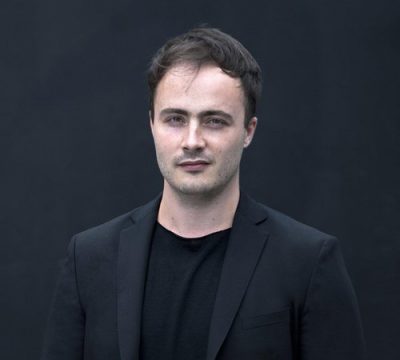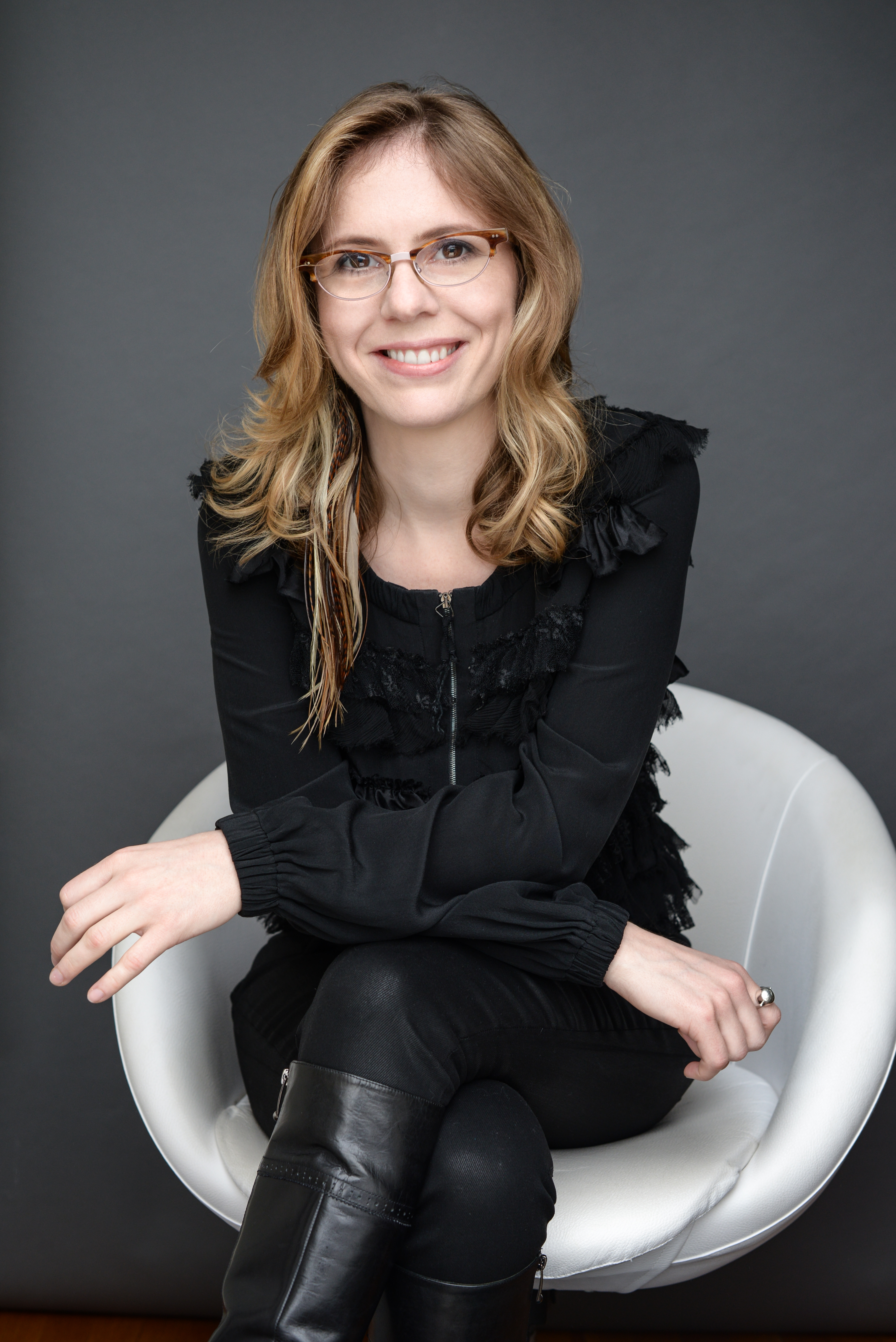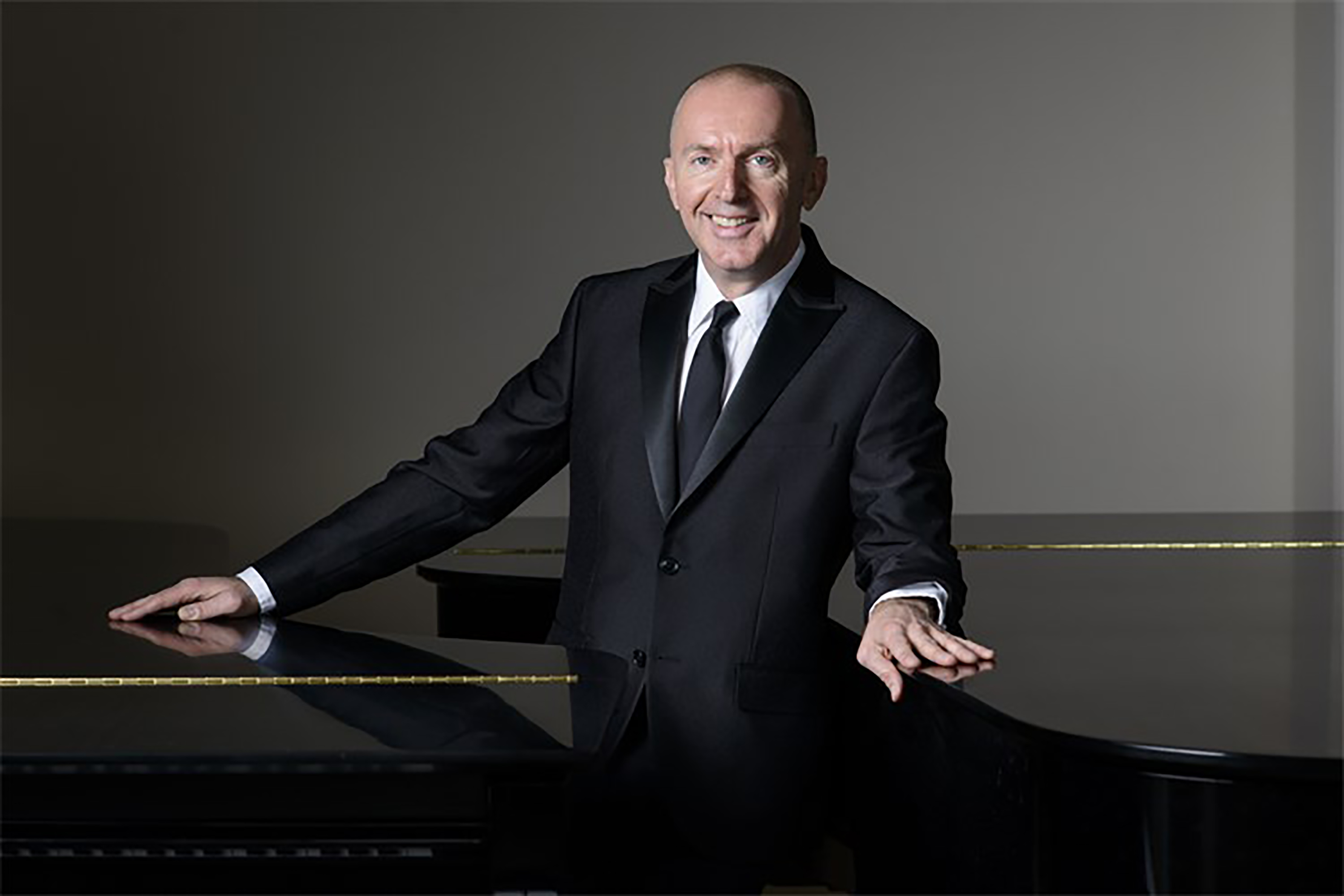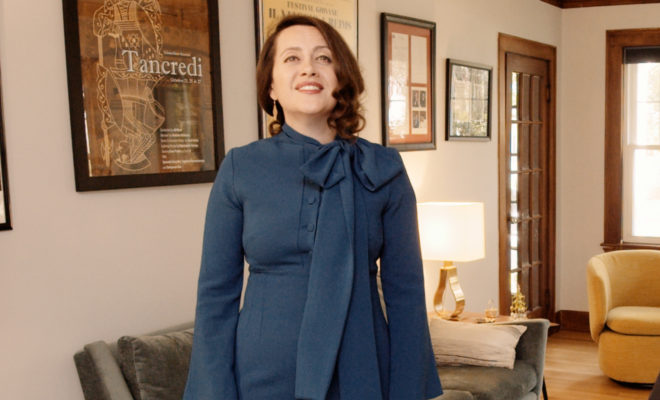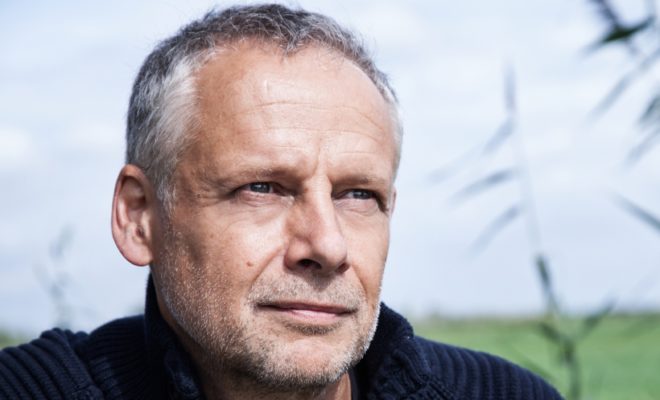Written by Ben Gernon.
It’s no secret that Bach was an incredibly diligent and hard worker: he spent his life studiously learning and revising his craft. Indeed, when he was 20 years old and employed as a church organist in Arnstadt, he decided to walk to Lübeck, a staggering 560 miles, to study with the greatest organist composer of the day: Dietrich Buxtehude. Bach’s dedication in this act alone is impressive, and the fact he stayed for four months instead of the intended four weeks shows just how happy and eager he was to immerse himself in learning.
With the Orchestra of St. Luke’s DeGaetano Composition Institute we have composers traveling anywhere between 1000 and 10,000 miles, not on foot I hasten to add, for the opportunity to work intensively with OSL musicians, as well as composer Anna Clyne. Anna is supremely talented and the mentorship she offers our composers is based on an impressive understanding and knowledge of the orchestra. Whenever I conduct her music I have the strong sense that she ‘gets’ the orchestra from the inside out, and is not afraid of violent gestures, manic motifs, melancholic melodies, kaleidoscopic textures and beautiful lines.
Our composers work with Anna over seven months prior to traveling to New York, writing a world premiere work for OSL. The musicians and I then have an amazing opportunity to work closely with the composers. It’s an inspiring week of sharing ideas, thoughts, philosophies, techniques, insights, opinions and ultimately looking to the future of our classical music world. During the intensive week our composers network with industry professionals, take part in workshops and masterclasses, and have the chance to develop and try out new ideas in a safe and supportive environment.
I am proud that OSL offers such support to our composers. It’s a difficult and complicated professional world for them to navigate. More often than not composers are commissioned for a single performance, often involving little rehearsal time or contact with musicians and conductors. How can we expect the music creators of today to thrive and take risks in a system that doesn’t allow them to nourish and explore their creativity?
As well as benefitting from OSL’s committed and wholesome support, there is no hiding the fact that having and sustaining a career in classical music requires a lot of hard work. The constant revision and reassessment of ones skills is, for me, an integral part of my life. As a conductor I am constantly reflecting on my rehearsals, performances: did I honor completely the composer’s wishes, did I convince the audience of the genius of the piece, did we really say something together? In Bach’s words, “I was obliged to be industrious. Whoever is equally industrious will succeed equally well.”
These words resound deeply within me. As musicians it is our duty to be diligent and to consistently hone our skills to ensure we can share those transcendental moments of awe and wonder in our concert halls with our audiences.
It’s this awe and wonder that Mozart experienced when he first heard Bach’s motet Singet dem Herrn ein neues Lied at St Thomas’s (Thomaskirche), Leipzig, in 1789. Performed as a surprise for Mozart’s visit, within the first few bars he could be heard shouting, “What is this?” and once the choir had finished, “Now, there is something one can learn from!” Inspired by the polyphonic brilliance, inventive use of text, fugal opulence, and harmonic beauty of this motet, Mozart insisted on seeing straightaway the other available motet manuscripts. In this moment, with sheets of music surrounding him, he came much closer to Bach than he ever had before.
Mozart’s immediate and overwhelming reaction to this motet has been echoed in later generations of musicians and composers, Wagner and Mahler among them. I share in their reactions, as I believe that Singet dem Herrn ein neues Lied is the most profound product of Bach’s church music, the result of his consistent refinement, exploration and curiosity. It is, in other words, a masterpiece.
Unaccompanied, written for double choir, a three movement “concerto,” it fills me with delight to imagine the first movement “Singet (s)” joyously pinging around the acoustic of St Thomas’s – the surround sound of the choirs must have been intoxicating. The harmonic simplicity of the second movement with the juxtaposition of contrasting texts (Chorale and Aria) is incredibly beautiful before launching into a vigorous final two-part movement. The ending is particularly special as suddenly two choirs become one, focused, singing an incredibly tricky but colorful display of fugal fireworks.
The unity through the convergence of the two choirs at the end of this motet takes on an even more pronounced meaning in our current time. Only through coming together as human beings can we truly look after one another, and only through coming together with music can we really enjoy its beauty, it’s depth, and it’s gifts.
And it’s this coming together of OSL and our composers, much like Bach and Buxtehude, that ensures we too are creating the music of our future, sharing and refining our skills, and igniting imaginations.
For us all, the journey to the artistic stratosphere continues.
Program
Johann Sebastian Bach
Singet dem Herrn ein neues Lied
